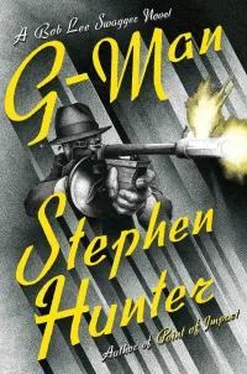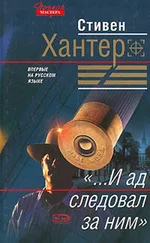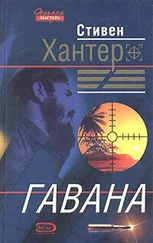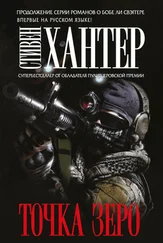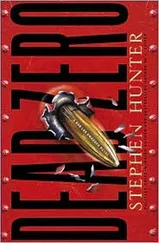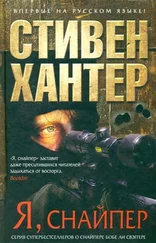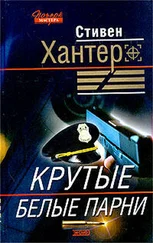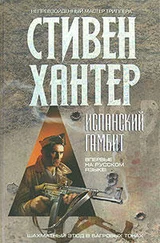Стивен Хантер - G-Man
Здесь есть возможность читать онлайн «Стивен Хантер - G-Man» весь текст электронной книги совершенно бесплатно (целиком полную версию без сокращений). В некоторых случаях можно слушать аудио, скачать через торрент в формате fb2 и присутствует краткое содержание. Жанр: Старинная литература, на английском языке. Описание произведения, (предисловие) а так же отзывы посетителей доступны на портале библиотеки ЛибКат.
- Название:G-Man
- Автор:
- Жанр:
- Год:неизвестен
- ISBN:нет данных
- Рейтинг книги:3 / 5. Голосов: 1
-
Избранное:Добавить в избранное
- Отзывы:
-
Ваша оценка:
- 60
- 1
- 2
- 3
- 4
- 5
G-Man: краткое содержание, описание и аннотация
Предлагаем к чтению аннотацию, описание, краткое содержание или предисловие (зависит от того, что написал сам автор книги «G-Man»). Если вы не нашли необходимую информацию о книге — напишите в комментариях, мы постараемся отыскать её.
G-Man — читать онлайн бесплатно полную книгу (весь текст) целиком
Ниже представлен текст книги, разбитый по страницам. Система сохранения места последней прочитанной страницы, позволяет с удобством читать онлайн бесплатно книгу «G-Man», без необходимости каждый раз заново искать на чём Вы остановились. Поставьте закладку, и сможете в любой момент перейти на страницу, на которой закончили чтение.
Интервал:
Закладка:
The group eased awkwardly to their knees in front of a nice sofa-and-love-seat arrangement the Koerners had set up, near the switchboard, which was how Koerner made his living.
“Okay,” he said, “sorry for the yelling, don’t mean to hurt no civilians. But I have to get out of here and I want you down and quiet. Keep your mouth shut and maybe you’ll live to tell your grandkids. You and you”—he pointed to the two men nearest the door, who happened to be in the party of three he’d just taken—“we’re going out and get in your car and drive away, got that? Play ball and you should be okay, except for the extra trip. The rest of you, stay down, stay quiet, be calm. I don’t even have time to rob you.”
He eased them out of the house, off the porch, and over to the last car in the now crowded driveway.
“Now, get in the front, and— What the—”
Astonishingly, there was already someone in the backseat. Another band member! Now what? He was just making this up.
“You, outta the car. Jesus Christ, where do you people come from?”
This one, who seemed to have been sleeping, rousted himself and staggered out of the car, utterly befuddled, but wise enough to keep his hands up.
“Okay, you, lie down, go back to sleep, don’t make a peep. You others, get in, start ’er up, and we’ll get the hell out of here”—and, just like that, another car suddenly appeared out of nowhere, this one also carrying three men, and it pulled off the road right at the driveway.
What now? Les thought with exasperation. Next a bus, or maybe a plane will land or a ship will come sailing up the river?
He turned the muzzle on the three new passengers, dangerously near rage, screaming again.
“Get out, get out, goddammit,” and he pulled open the rear door to discover himself staring into the maw of a Thompson submachine gun.
He was dead.
I’m dead, he thought.
But he was not dead, for though the federal’s face broadcast effort and exasperation, no flash announced the release of a bullet stream that would, from this range, cut Les in half.
Les had no reaction, but, faster than a leaping rat, his finger saved his life by jerking hard on the trigger of Mr. Lebman’s machine pistol and it emptied itself in three seconds, kicking out a spew of spent shells as the gun ate its magazine, as it had been designed to, in one gulp.
It felt like he had a rocket by the tail, all whoosh and burn and shudder, bucking and twisting, yet with both his fists locked around the grips, it did not deviate, and its freight hit and devastated the automobile and its passengers, hazing windows with webs, pulling out puffs of horsehair from the upholstery, spreading punctures in a general south-to-north pattern across the exposed metal that comprised the body of the car.
The G-Man never got his trigger pulled but instead reared backwards, dropping the weapon, hands flying to throat and the sudden jets of blood that were gushing his life away, staggered from the car, the Thompson spilling off his lap, and fell to earth. The others beat it too, hit or not, and Les didn’t even see them go, as he was too absorbed in the drama of killing.
When he came back into his real head, he found himself standing alone by the car in a fog of gun smoke amid a pile of spent brass. All other humans had vanished from the earth, as hostages and targets alike had taken off like rabbits and managed to find cover in the dark.
Les jumped in the car, tossing the gun on the seat behind him. The driver hadn’t even killed the engine, so he simply clutched it into gear, pulled onto the road, and sped away.
Ha! he thought. I made it.
Or did he?
After a few miles of forest road, well lit by his headlights, he came to a straightaway, and a quarter mile ahead, two other headlights came onto the same stretch of road, a sedan driven fast, so fast it had to be law people.
Fuck! he thought.
And then he thought, Fuck them!
And then he thought, You boys want to play tough. Let’s see how tough you are.
He foot-stomped the gas pedal and he felt the engine surge in aggression, now swallowing gasoline at full hunger, and around him the forest, the road, the onrushing headlights of the enemy car, all went to blur.
We’ll see who’s got brass balls, Lester J. Gillis, known to press and cop as Baby Face Nelson, thought with a snort, a laugh, and a sudden injection of joy, as he aimed the car straight between the headlights and floored it.
CHAPTER 6
LITTLE ROCK, ARKANSAS
The present, a day later
Between firing ranges, the differences hardly matter. This one was in a strip mall, contained a retail store of late-modern pistols, not so many hunting rifles as many might have, a fair sampling of assault rifles and shorter-barreled shotguns, and no doubles or over-and-unders. It was not paneled in knotty pine, and no deer heads gazed at eternity through marble eyeballs from its walls; instead, zombies and insane clowns were on display, as well as anatomically revealing silhouettes and competition cardboard. Clearly, its theme was self-defense for the burgeoning concealed-carry market, and at the reception desk of the range proper, which lay in darkness behind thick plexiglass windows, the old Colt excited some comment.
“Wow,” said the range officer, “that’s a nice piece, sir. You sure you want to shoot it? It might have some collector value.”
“I want to run a function-and-accuracy check,” said Bob, “before I strip it down for detail cleaning and put it on the market. It hasn’t been fired since 1934. I need a box of hardball.”
“Yes sir, but, again, we do have 200-grain lead semi-wad reloads. A lot safer, a lot less kick.”
“I reckon I can get through the hardball,” said Bob. “If my granddad could, I could. It was built by Hartford to play the hardball game. That was the only game in town in ’34, but you know that.”
“If I did, I forgot,” said the man, who had the face of a Roman legionary behind glasses that had last been fashionable in the ’70s.
Bob accepted the white box of fifty generic Winchester 230-grain full metal jackets, the man-stopping load the government had issued for seventy-three years under the designation “ .45 caliber ball,” thus earning it the nickname hardball forever. Then he put on the mandatory safety glasses and earmuffs and pushed through the double doors. As he entered, the officer turned on the lights, illuminating a cavern with eight shooting booths, each with an electric pulley setup to run targets out to the twenty-five-yard line. Bob went to his assigned booth, put the briefcase on the shelf, and pinched an NRA bull’s-eye target, a simple black circle on an otherwise blank sheet, into the clamp. He turned, found the toggle switch, which sent the target downrange twenty-five yards until it bumped the far wall.
Then, quickly and without ceremony, he removed the gun from its case, popped open the white box, poured the ammo onto the shelf, where it clicked and rolled with heavy authority, then locked the slide back and pressed the button to remove the mag.
He threaded seven in, for Charles Swagger would have carried it that way, or perhaps he cranked one into the chamber, put the safety on, removed the magazine, and inserted one more against the tightness of the compressed spring. An old gunfighter’s trick, it would give him one more round in a fight where one round might be the difference.
Charles would have shot one-handed too, for in those days the concept called modern technique, which counsels a two-handed, bone-tightened isosceles grip in all applications, hadn’t been invented, and wouldn’t be till the late ’50s. Everybody saw a pistol as a one-handed implement, as all the old pictures showed, which may be why they missed so much in those days.
Читать дальшеИнтервал:
Закладка:
Похожие книги на «G-Man»
Представляем Вашему вниманию похожие книги на «G-Man» списком для выбора. Мы отобрали схожую по названию и смыслу литературу в надежде предоставить читателям больше вариантов отыскать новые, интересные, ещё непрочитанные произведения.
Обсуждение, отзывы о книге «G-Man» и просто собственные мнения читателей. Оставьте ваши комментарии, напишите, что Вы думаете о произведении, его смысле или главных героях. Укажите что конкретно понравилось, а что нет, и почему Вы так считаете.
